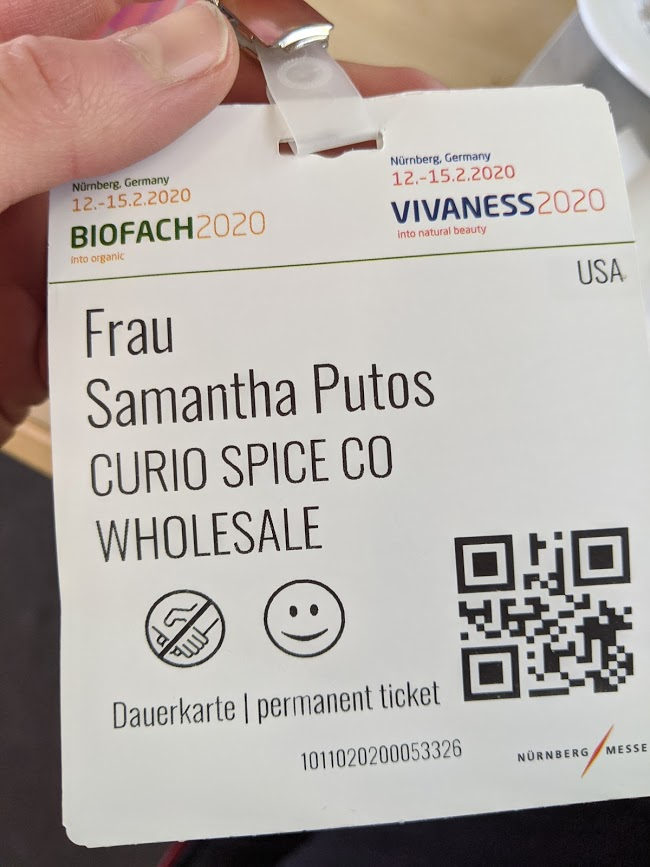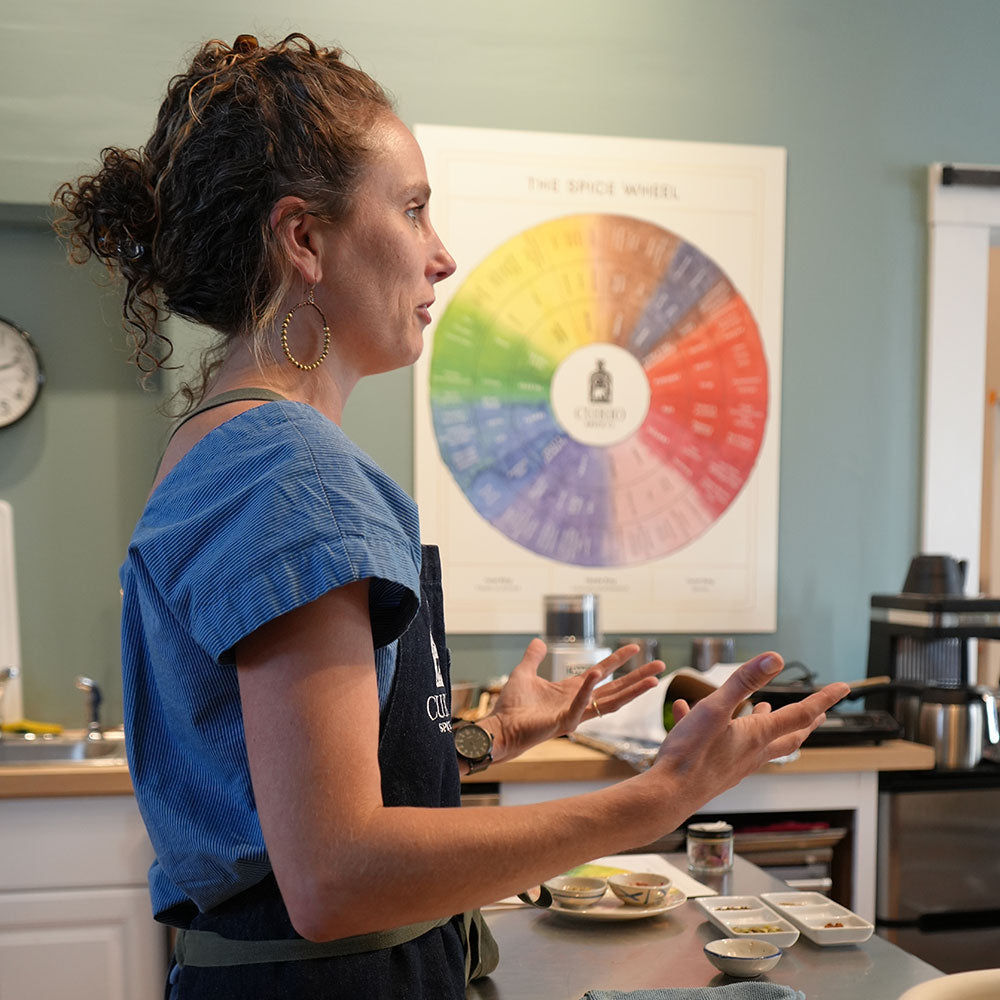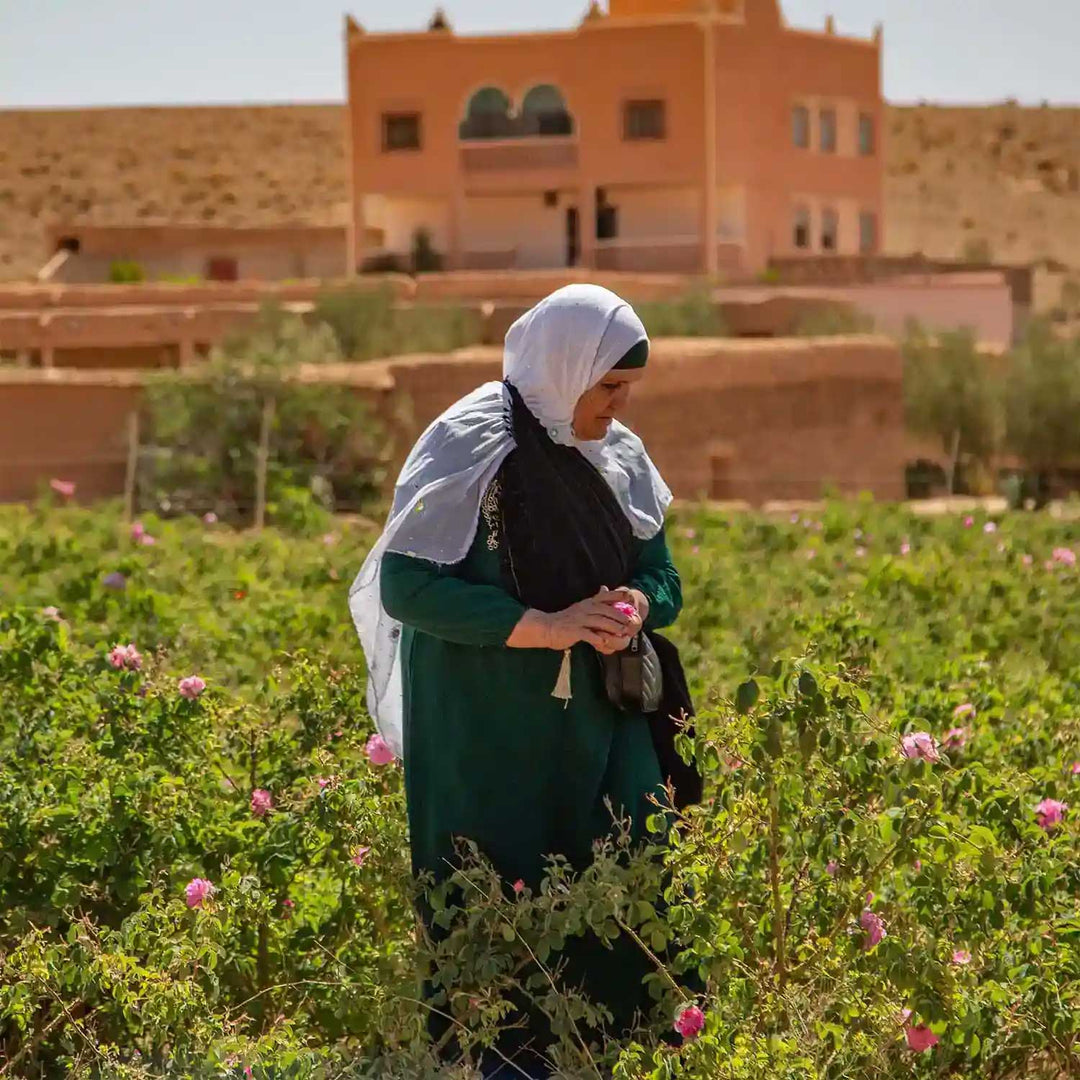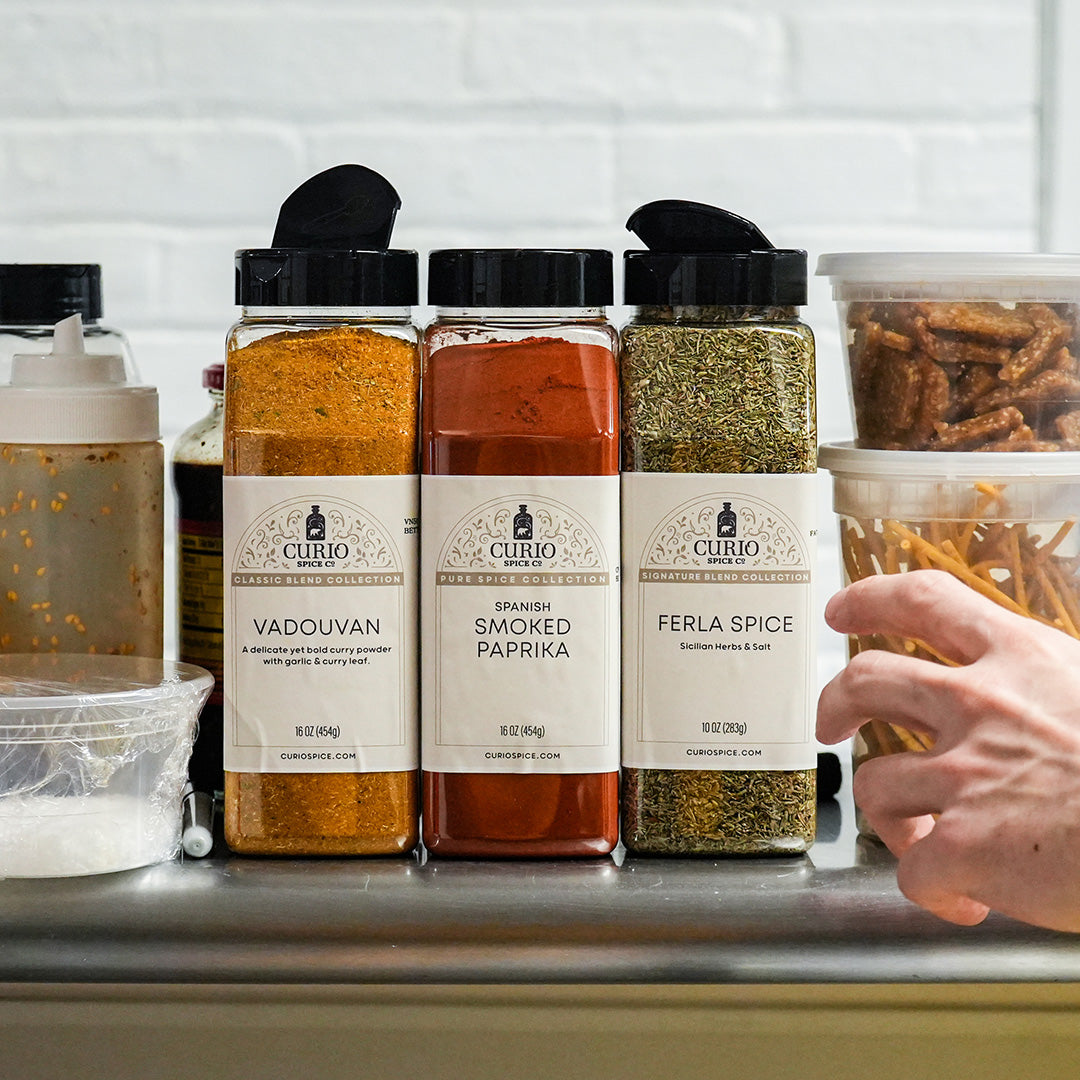Confessions of A Small Business Surviving Covid-19
Still life with sanitizer. By Miranda Harter.
Just this February, Claire, and operations manager, Sam, were in Nuremberg, Germany shaking hands with some of the finest suppliers of food and spices at BioFach, the world’s leading trade fair for organic food. By March, Covid-19 had begun to make its presence known across the state of Massachusetts. Today, not only is shaking hands socially unacceptable, but nearly everything about our business—save the spices themselves—has undergone a massive transformation.
“I remember writing a message on our sidewalk sign that read ‘Fresh spices for strange times,’ thinking this would be over soon, like a snowstorm, and I'd erase it and write something else, like ‘New classes’” Claire recalled recently during a conversation about how the pandemic has changed life for our workforce. “But as everything unfolded the fears became real.”
As you can imagine, it was a challenging time for business owners, particularly those whose product depends on work that cannot be performed solely through a screen. Claire watched as her husband's business and so many others went remote overnight. “But how do you run an artisan food manufacturing business remotely?” The answer: “You can't.”

Claire at BioFach! In Nuremburg, Germany, blissfully unaware of the shutdowns to come.

Spices at a booth at BioFach

Frau Putos! Sam’s name badge at BioFach. Already they were discouraging hand shaking, but no one listened and that was the extent of the impact of Covid-19 at this conference.













Leave a comment